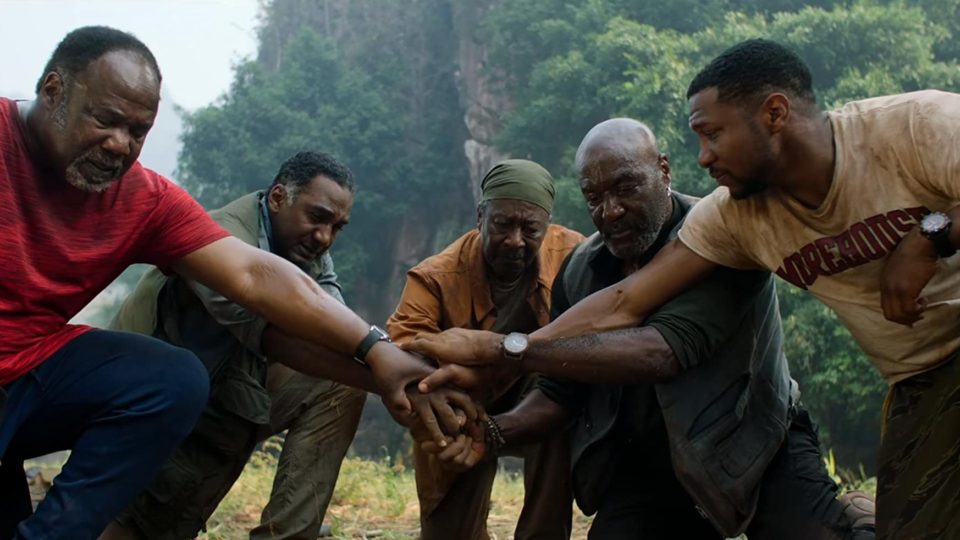The best of the Spike Lee-directed Da 5 Bloods lies in its questions, the dazzling presentation and importance of which make up for its seen-before tropes and dainty catharsis of an ending.
Unexpectedly timely as it lands on Netflix, the film in its opening montage steps through the American civil rights movement and anti-war protests to the unjustified killing Vietnamese civilians, inviting a comparison between their plight and that of the black Americans.
With that, the film makes us wonder: Are these black GIs the imperialists, the oppressed or, “it’s complicated?” This question hangs onto us upon meeting the main characters in the present: African American vets Paul (Delroy Lindo), Otis (Clarke Peters), Eddie (Norm Lewis), and Melvin (Isiah Whitlock Jr.) – the “Bloods” – who return to Vietnam in search of the remains of their squad leader, Norman (Chadwick Boseman), and the fortune in gold he hid – gold intended for a Vietnamese hill tribe fighting the Viet Cong. The four vets trek through jungle while battling complex internal and political demons.
Instead of Vietnamese jungle, we are of course actually seeing Thailand – Lee was in northern Thailand shooting the film in March and April of last year.
Black Panther star now in Thailand filming new Spike Lee joint (photos)
The film cuts between the past, where the Bloods fight to retrieve the gold, and their present journey to bring it home. Through each revealing sequence, we piece together what went down in ‘71 and our view of the Bloods fluctuates with each revelation. Are they stealing this gold from the Vietnamese? Is this gold their reparations for the crimes committed against black people? As a Southeast Asian familiar with the archetypal unwelcome American GI, I delighted in the “twist” that these soldiers are black, which poses the fascinating and important question of whether it justifies their actions.
It’s unfortunate that the film asks such meaningful questions yet meanders into a typical plot twist with a tropey French villain. There’s a moment where the French villain dons a “Make America Great Again” hat, but it’s played as a throwaway joke, lessening the potential message.
Not unlike Francis Ford Coppola’s Apocalypse Now, a poster for which makes a cameo, the Bloods’ journey into Vietnam also retraces their racial traumas as black GIs.
While dining at an old flame’s place, negotiating her help in smuggling the gold, Otis is introduced to a young half-Vietnamese-half-black woman. She turns out to be their daughter out of wedlock. She tells Otis that their daughter has been treated deplorably, called a cockroach and considered “too dirty to clean toilets” in Vietnam. Though this moment never leads to anything sustained, it rings powerful nonetheless.
Paul, the Blood’s MAGA member, goes through a remarkable internal journey, fighting the guilt he’s carried from soldiering in an unjust war, even if for his own emancipation. We see him call a pushy vendor “gook,” alongside the pathos of his trauma, particularly during a brilliant long-take soliloquy interwoven cogently by Delroy Lindo’s superb performance.
Ever since Spike Lee made us ask ‘what is the right thing to do?’ in Do The Right Thing 31 years ago, his films and their questions have evolved in complexity and ambition. Spike Lee pounces onto even harder questions in Da 5 Bloods, and we should be watching.
Viewers shouldn’t let the film’s uneven writing and slightly predictable, hokey plot get in the way of immersing in its important questions.
Da 5 Bloods is streaming now on Netflix.





